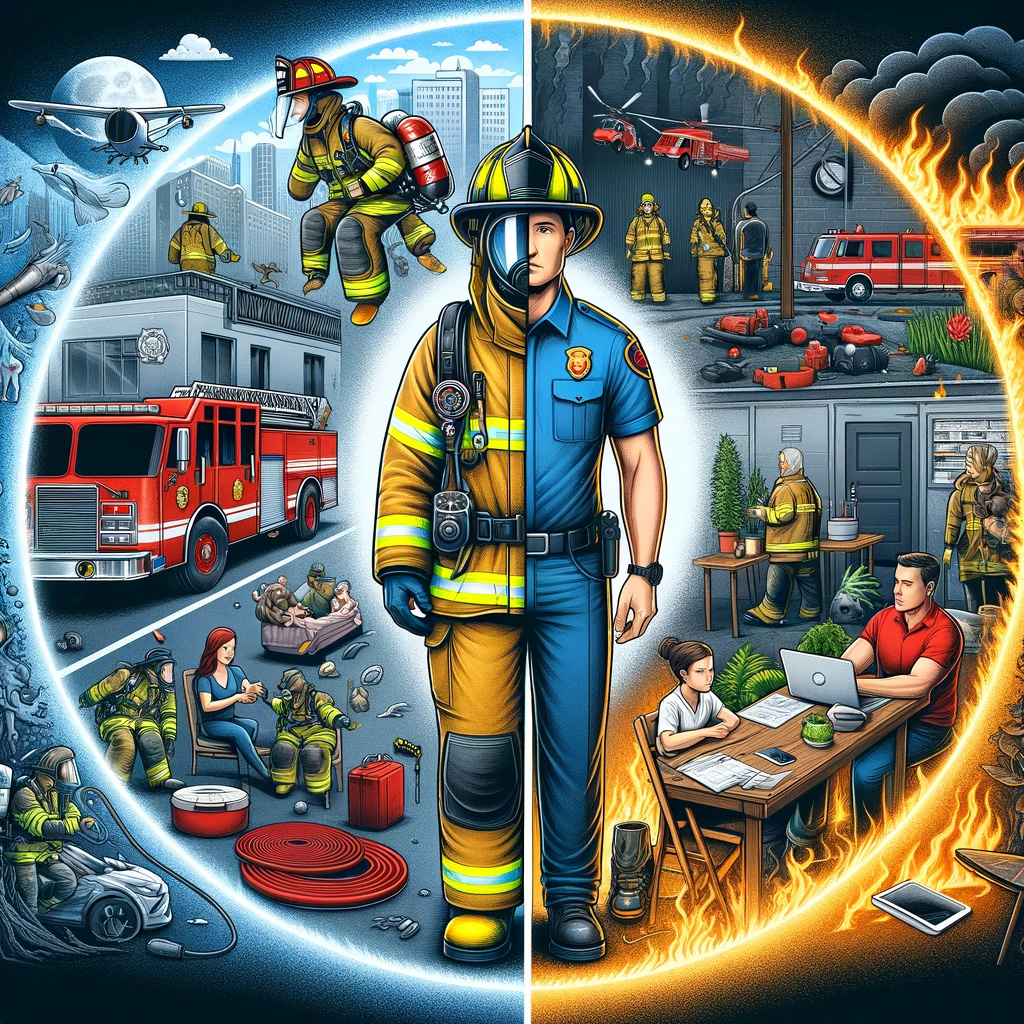Demonstrate Work-Life Balance of Fire Department Schedule to Increase Recruiting Efforts

In today’s fast-paced and ever-evolving world, the concept of work-life balance and the desire for workplace flexibility have become increasingly important, especially for Generation Z (Gen Z). Born between the mid-1990s and early 2010s, Gen Z is entering the workforce with a distinct set of values and expectations that significantly differ from those of previous generations. For industries and services aiming to attract this young talent, including the fire service, understanding and promoting work-life balance and flexibility is crucial. This blog post explores the significance of these aspects for Gen Z and outlines strategies for the fire service to highlight these benefits, thereby enhancing their recruitment efforts.
Understanding Gen Z’s Perspective
Prioritizing Mental Health and Well-being: Gen Z places a strong emphasis on mental health and overall well-being, valuing careers that offer a healthy work-life balance. The high-stress nature of firefighting makes it imperative for fire departments to address and promote strategies that support mental health and work-life balance.
Seeking Flexibility and Autonomy: Unlike generations that prioritized job security and long-term career paths with a single employer, Gen Z values flexibility and autonomy in their work. They look for roles that allow them to manage their work schedules creatively and balance personal interests and professional development.
Digital Natives Expecting Modern Solutions: As digital natives, Gen Z expects modern solutions to traditional work arrangements. They are more open to and appreciative of roles that utilize technology to facilitate flexible working conditions and efficient operations.
Promoting Work-Life Balance in the Fire Service
The fire service, with its demanding schedules and high-stress environment, may not initially appear conducive to work-life balance and flexibility. However, several strategies can be employed to attract Gen Z candidates by highlighting the initiatives aimed at promoting these values:
Highlight Mental Health Support Programs: Fire departments should actively promote their mental health support and wellness programs. Initiatives such as counseling services, stress management workshops, and peer support groups demonstrate a commitment to the well-being of firefighters. Showcasing these programs in recruitment materials can attract Gen Z candidates who prioritize mental health.
Emphasize Team Cohesion and Community Impact: Gen Z values meaningful work that contributes to the greater good. Fire departments can emphasize the strong sense of camaraderie among firefighters and the direct impact their work has on community safety and well-being. Highlighting these aspects can make the profession more appealing by aligning with Gen Z’s desire for purposeful work.
Showcase Flexible Scheduling Opportunities: While firefighting requires adherence to shift schedules, departments can explore and highlight any flexibility within this framework. This could include options for trading shifts, flexible off-duty periods, and opportunities for part-time positions or paid on-call arrangements. These options can make the fire service more attractive to those seeking a balance between their professional and personal lives.
Promote Professional Development and Continuous Learning: Gen Z is highly motivated by opportunities for growth and learning. Fire departments can attract young talent by showcasing pathways for career advancement, specialized training programs, and educational benefits. Emphasizing a commitment to professional development can resonate with Gen Z’s aspirations for continuous improvement and career progression.
Leverage Technology and Innovation: As digital natives, Gen Z expects the use of technology in the workplace. Fire departments can highlight how they incorporate technology and innovation in their operations, from advanced firefighting equipment and data analytics to training simulations. Showcasing a forward-thinking and technologically adept environment can appeal to Gen Z candidates.
Strategies for Effective Recruitment of Gen Z
Utilize Digital and Social Media Platforms: To effectively reach Gen Z, fire departments must maintain a strong online presence. Utilizing social media platforms, engaging websites, and interactive online recruitment campaigns can capture the attention of Gen Z candidates and communicate the benefits of a career in the fire service.
Offer Internships and Ride-Along Programs: Providing hands-on experiences through internships, ride-along programs, or volunteer opportunities allows Gen Z candidates to gain a realistic understanding of the fire service. These experiences can also demonstrate the department’s commitment to work-life balance and flexibility.
Foster an Inclusive and Diverse Work Environment: Gen Z values diversity and inclusivity. Fire departments should highlight their efforts to create a welcoming and inclusive work culture, showcasing diversity in their ranks and commitment to equity in recruitment and promotion processes.
Engage in Community Outreach and Education: Building relationships with schools, colleges, and community organizations can help fire departments connect with Gen Z individuals. Participating in career fairs, educational seminars, and community events allows for direct engagement and the promotion of the fire service as a rewarding career choice.
Conclusion
Attracting Gen Z to the fire service requires an understanding of their values and expectations, particularly regarding work-life balance and flexibility. By actively promoting mental health support, flexible scheduling options, professional development opportunities, and the use of technology, fire departments can make the profession more appealing to this generation. Additionally, leveraging modern recruitment strategies and emphasizing the meaningful and impactful nature of firefighting can further enhance the appeal. As fire departments adapt to meet the needs and expectations of Gen Z, they can successfully recruit and retain the next generation of firefighters, ensuring a diverse, skilled, and committed workforce ready to meet the challenges of the future.
